A Story of Tactility: Pixie Byron Bay by Flack Studio.
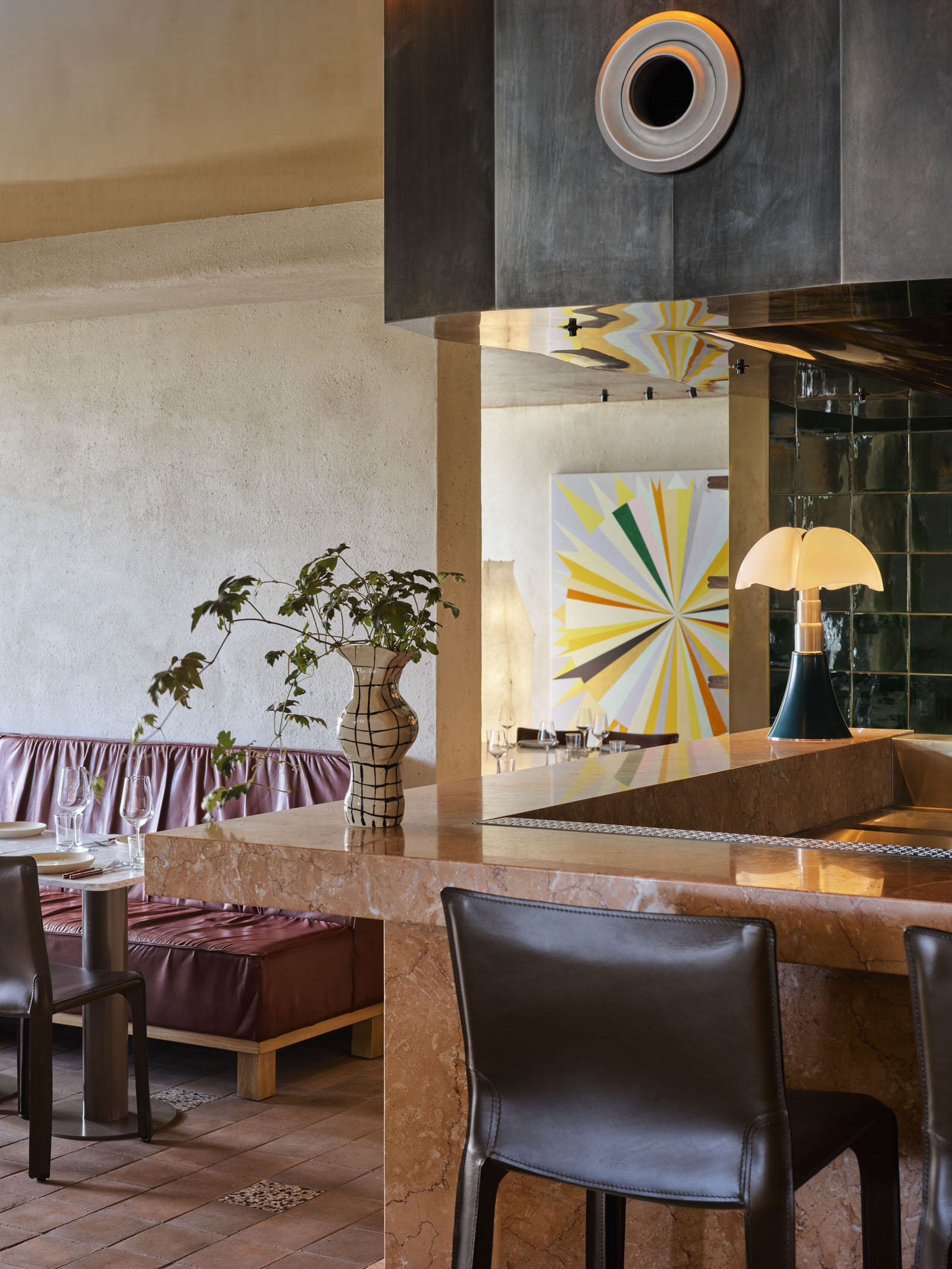
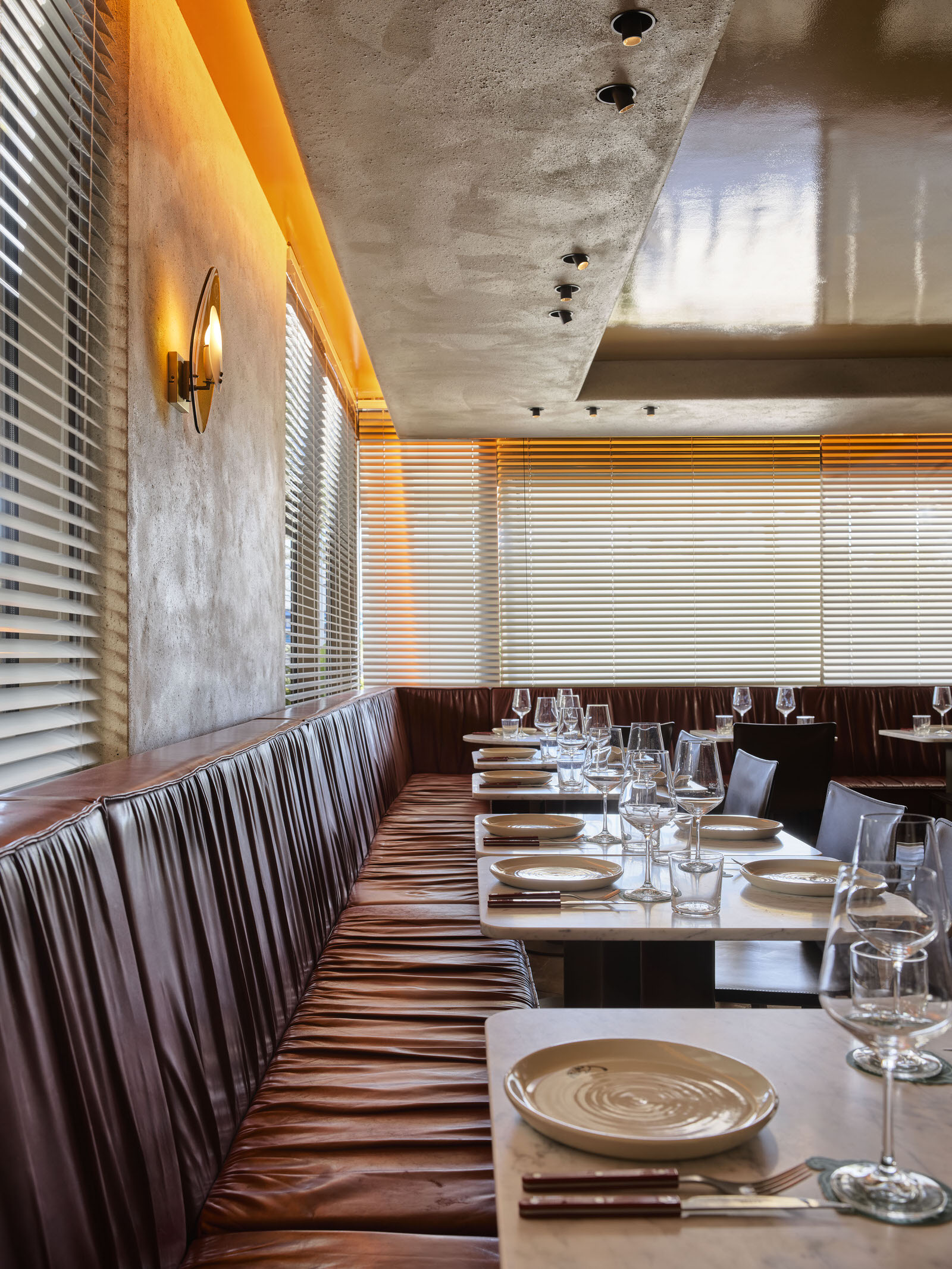

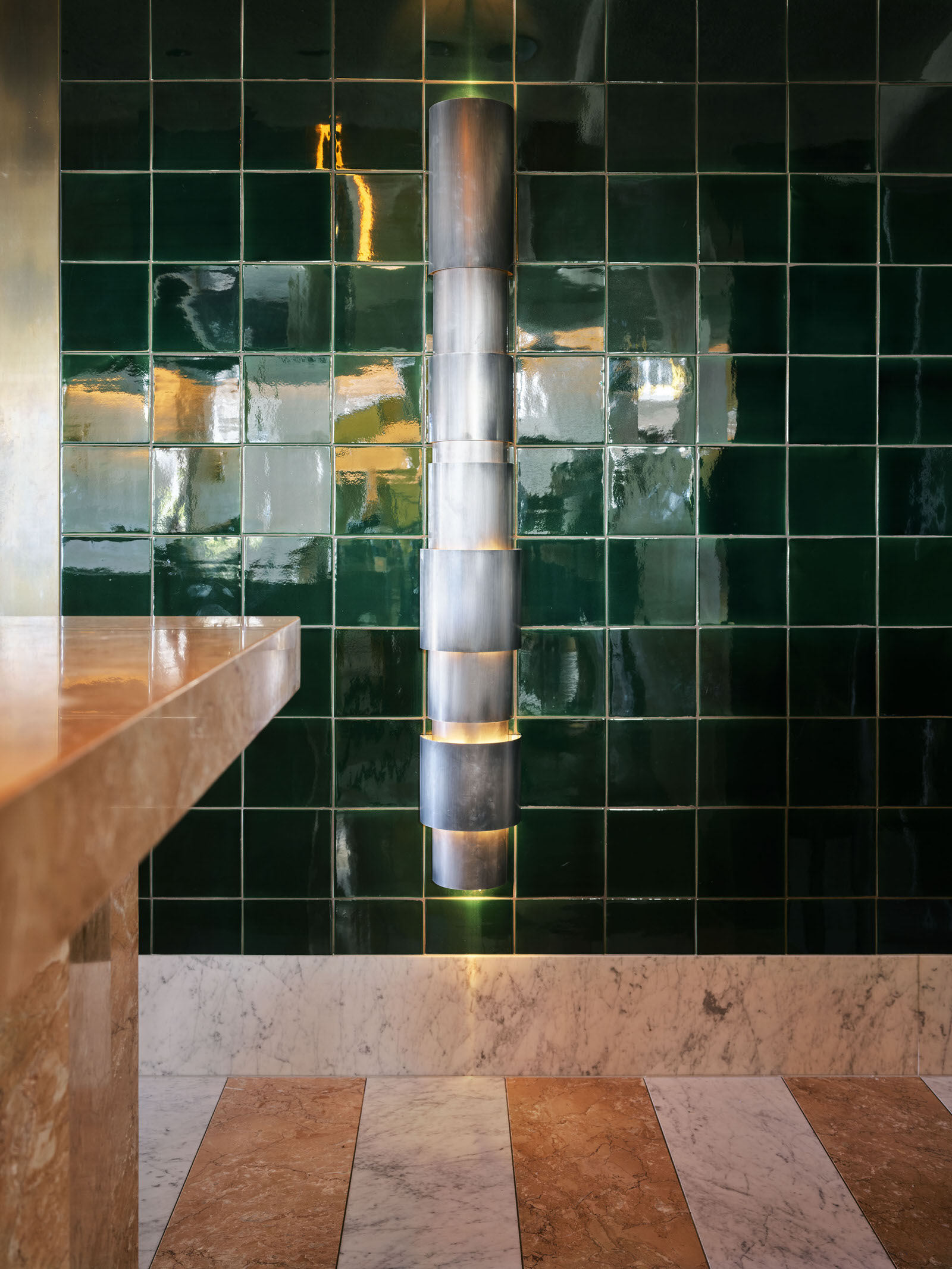
Hot off the press from Flack Studio comes Pixie Food & Wine, Byron Bay’s latest restaurant set in the newly opened Jonson Lane Precinct (home to a host of new venues, including Venroy, Deiji Studios and Nagnata’s epic retail stores—watch this space). Headed up by restaurateurs James Sutherland and Kim Stephen, alongside head chef Matteo Tine, Pixie marries the sophisticated sensibility of Italian dining with the laid-back beach culture Byron Bay is famous for.
The multi-layered interior invites guests to explore the subtlety and complexities of Byron’s landscape through an evocative space with offbeat elements and a rich material palette reflecting the locality and place of community. Flack Studio’s scheme delivers a signature theatrical ambience, with corners to converse in, laced with a gentle fusion of nostalgia, artistic elements and luxurious accents.
Overall, the space pays homage to 1970s Italy, with nods to Gae Aulenti—a mid-century female architect and designer whose work celebrated the tension between old and new. “Through a selective process, we created a unique cultural theme,” explains David Flack. “The menu draws inspiration from across Europe, and an interior compliments that,” he says, continuing — “This nostalgic experience is layered with Australian art and native plants to create a multicultural dialogue of creativity.”

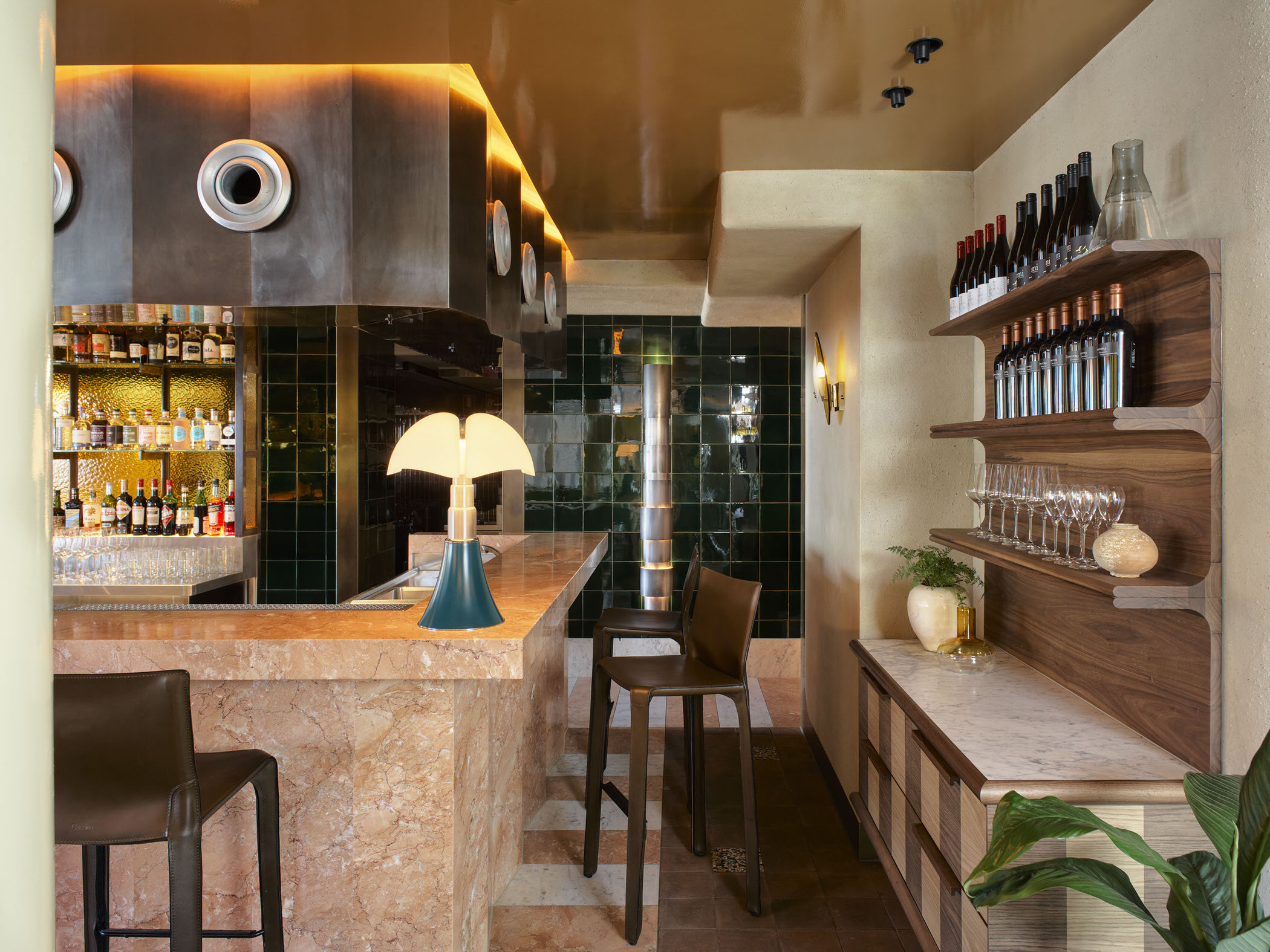
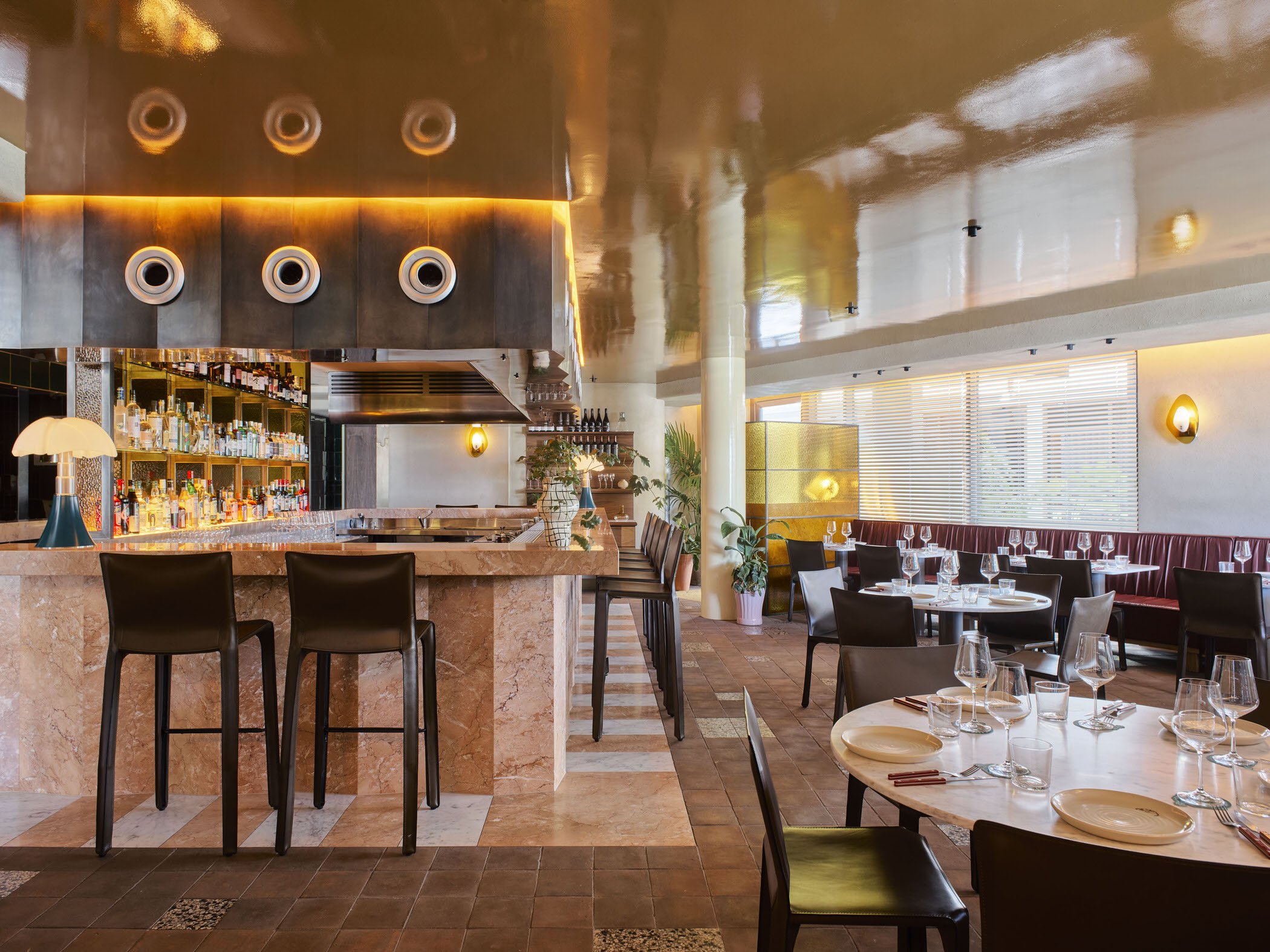
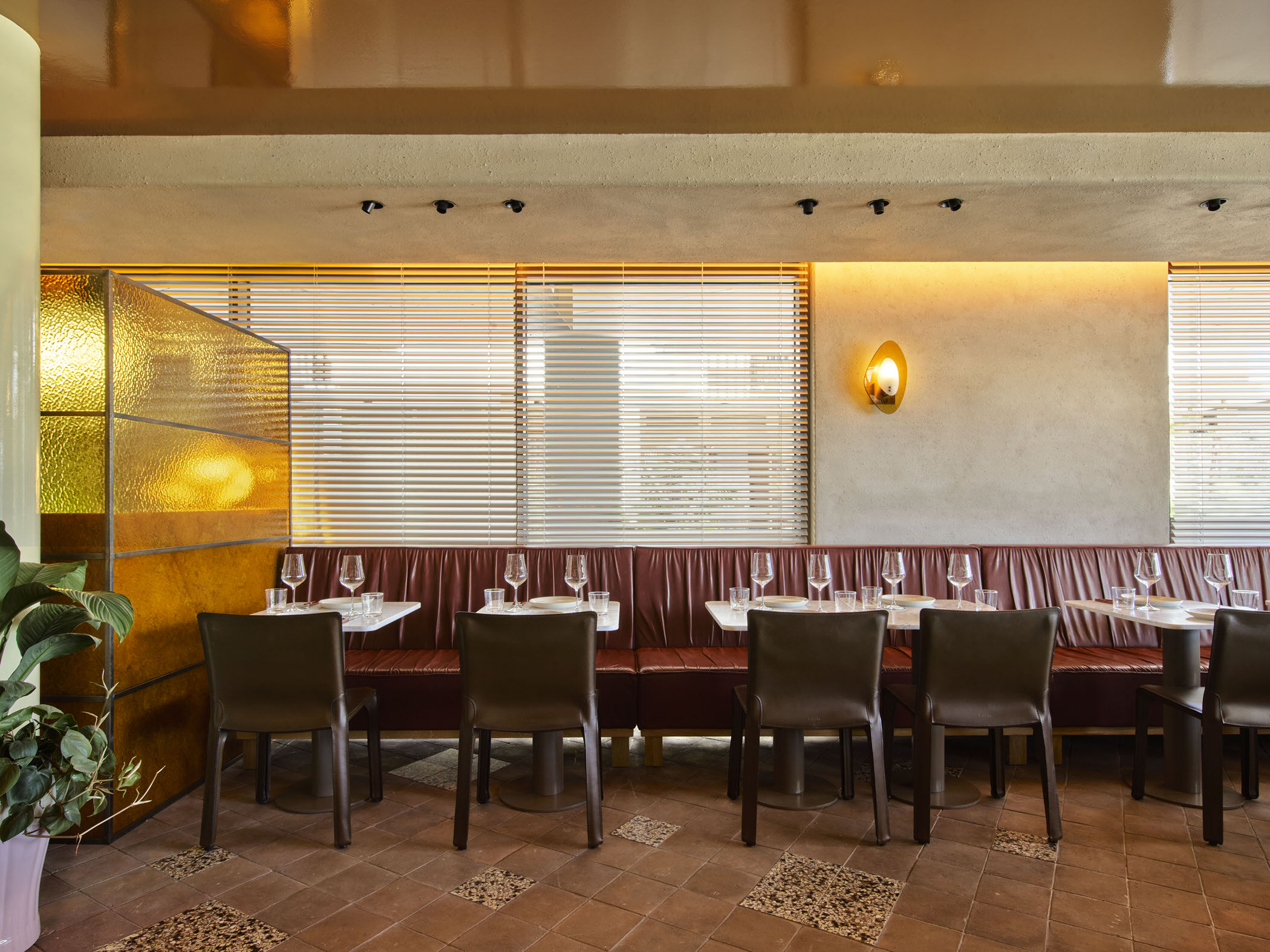
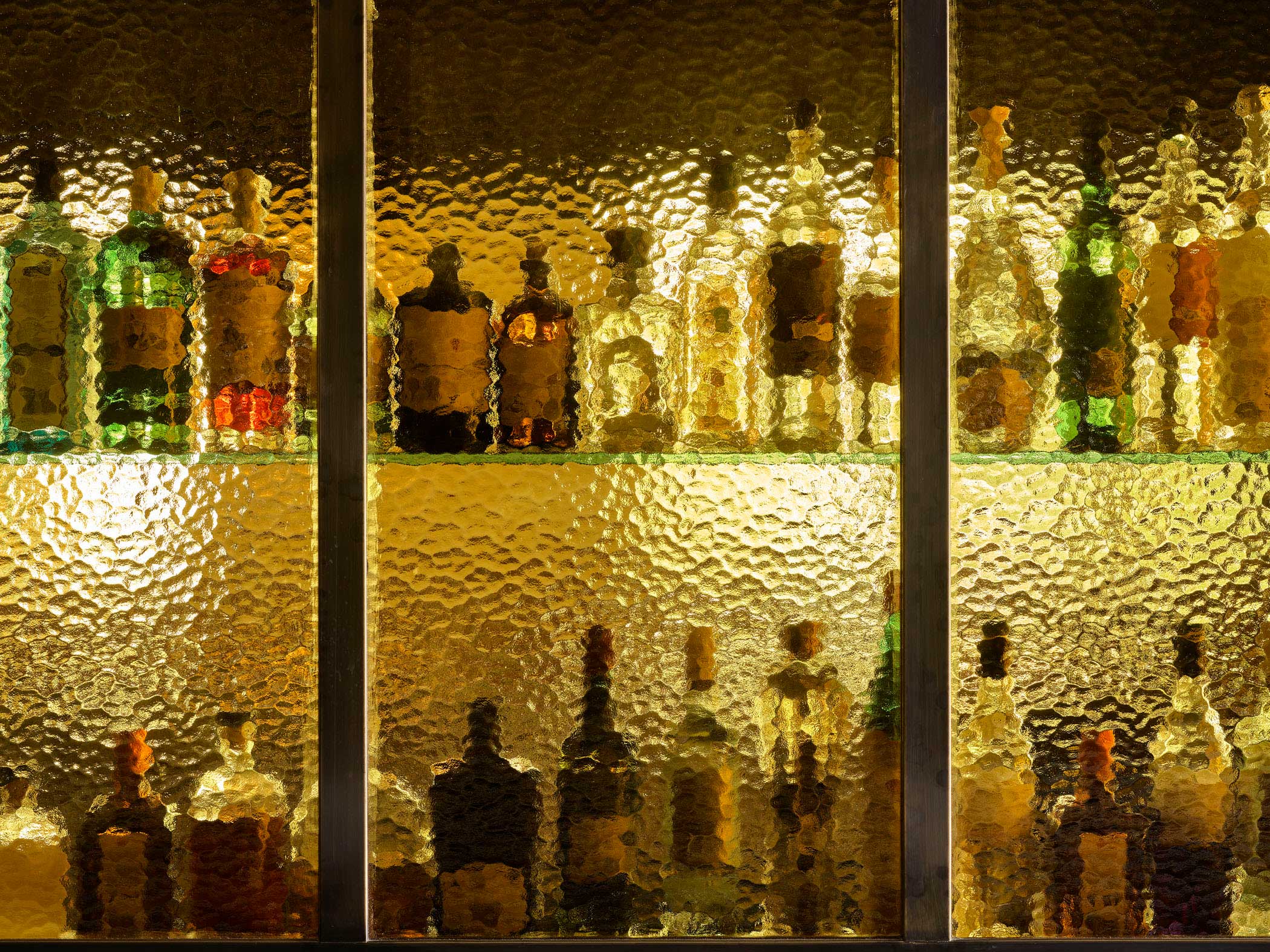
The interior response was driven by customisation, ensuring that form and function align with the end user, the client’s brief, and the local landscape. “When visiting Pixie, you experience the blur of lines between old and new, making it hard to pinpoint a timestamp,” says David. “Many elements, like the Pipistrello table lamp by Gae Aulenti, Fantasma floor lamp by Tobia Scarpa and the Shogun lamp by Mario Botta—paired with custom design—impart a hybrid modernisation of 1970s European diners.”
Flack Studio layer vintage with modern, while burnt terracotta tones are paired with haphazard terrazzo in-lays in a mastery of clashing colours. “The terrazzo in-lays speak of perpetuity,” explains David. “It creates the sense that Pixie has been an institution and will be for years to come.”
Ruched elderberry banquette seats complement Mario Bellini-designed Cab chairs for Cassina. The venetian walls are rendered with crushed seashells delivering a texturally embracing and warm atmosphere, contrasted by high gloss limoncello-tone columns and accented with amber-textured glass wall lights. The cosy cave is illuminated by controlled shafts of natural light beaming through the Venetian blinds.
The central ziggurat bar made from Russo Nuvola stone, and its burnished stainless-steel overhead element, anchor the triangular room, generating a warm connection between all visitors.

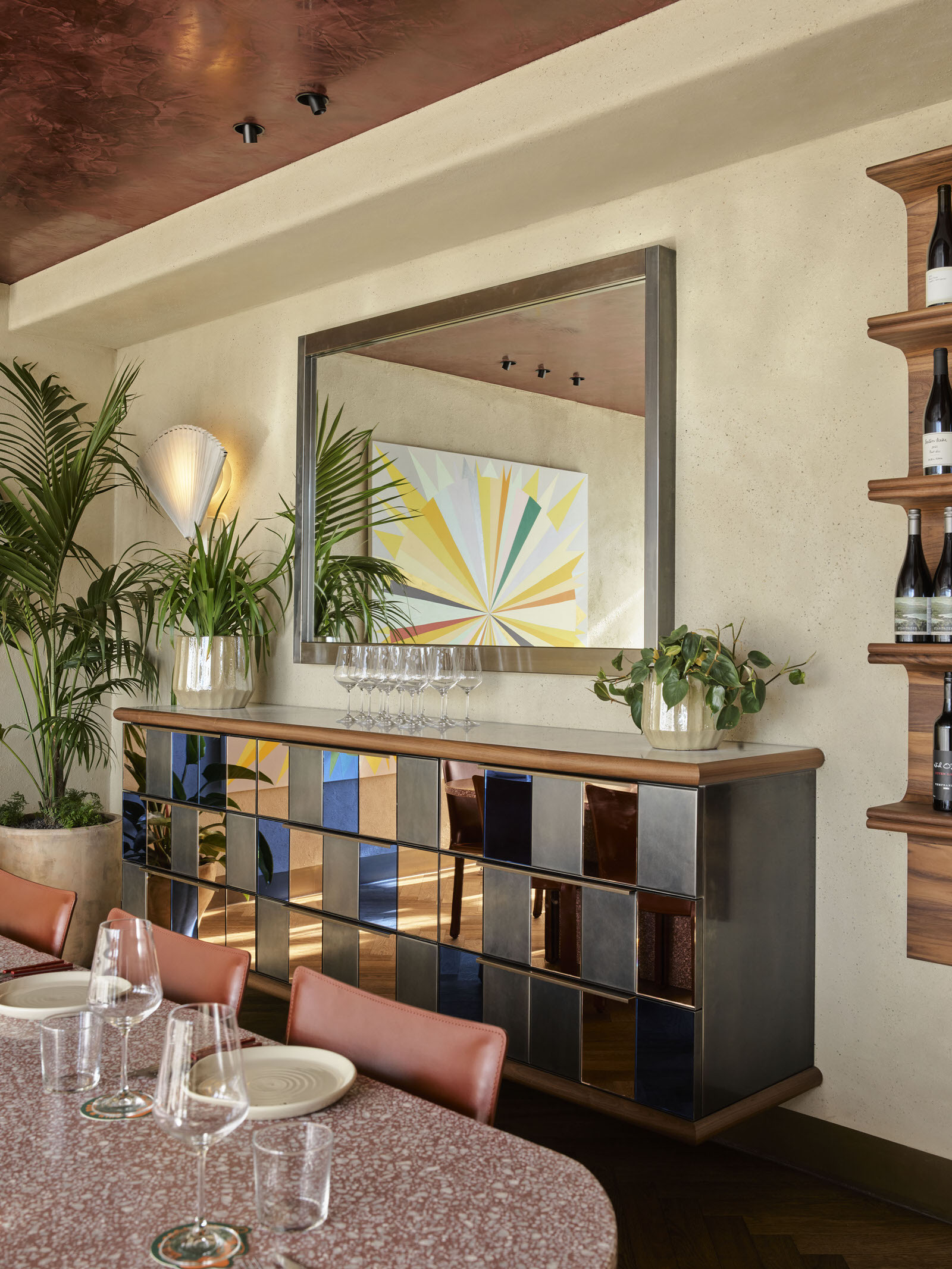
“Pixie was brewing throughout a pandemic and the uncertainty of flooding,” confesses David. “The relentless efforts of designers, builders, and collaborators live in the restaurant’s walls.”
It’s this shared community spirit that adds an element of magic at Pixie—the interior brings together multiple elements and references to create a story of tactility that offers an energising experience for the visitors. Warm, effortless, and inviting, the eatery celebrates the creativity of Byron Bay, welcoming people from afar while bringing together produce, wine, cocktails and all things connected to the love of joining one another at the table.
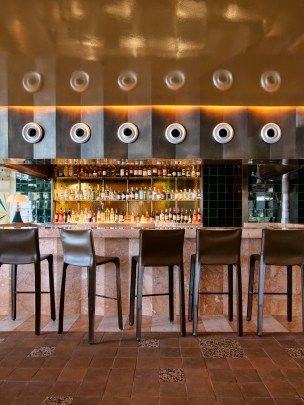
[Images courtesy of Flack Studio. Photography by Anson Smart.]














